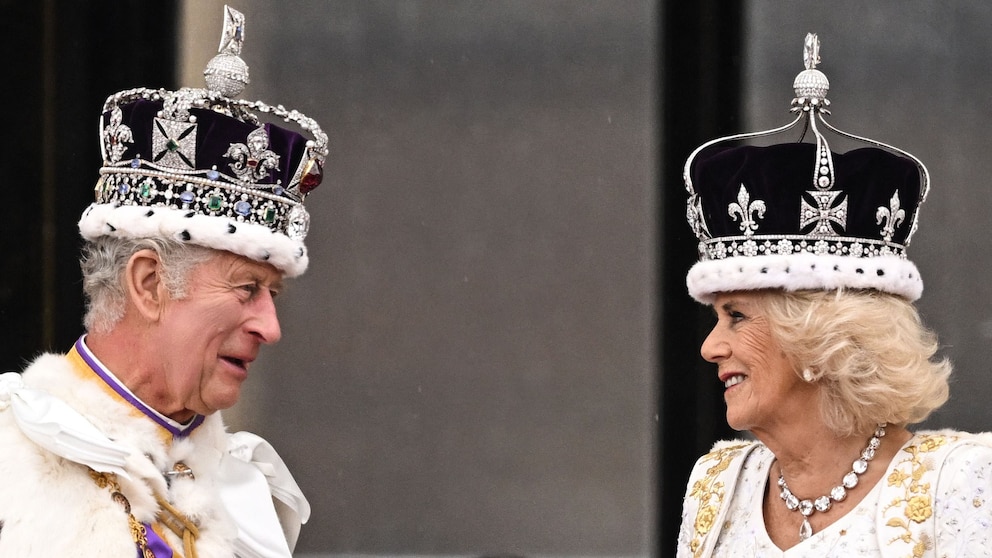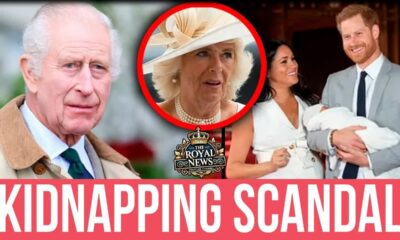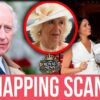Must Read
The Crown’s Challenges: King Charles III Under Scrutiny
The world is abuzz with questions regarding the current state of the British monarchy, particularly concerning King Charles III.
As he strives to embody the virtues of a modern monarch, some are beginning to wonder if his reign has already encountered significant hurdles.
While many appreciate his efforts, the reality is that no leader is without faults, and the question remains: are these shortcomings worth overlooking?
In moments of crisis, it's hard not to reflect on the legacy of Queen Elizabeth II.
Her innate ability to navigate complex situations—knowing when to speak and when to remain silent—was truly remarkable.
Many find themselves reminiscing about her reign, especially when faced with contemporary challenges.
The Elizabethan era stands out as a time of stability, where her presence alone seemed to provide comfort in turbulent times.
Queen Elizabeth was adept at maintaining a neutral stance, steering clear of political entanglements while still engaging with the public in a way that felt personal yet respectful.
Her comments were often light, yet they carried weight, allowing her to connect without crossing boundaries.
In contrast, King Charles seems to be grappling with how to balance his personal views with the expectations of his role.
It's a tightrope walk for Charles, who has never shied away from voicing his opinions on various topics, from architecture to climate change.
However, these discussions may not resonate with everyday citizens preoccupied with more immediate concerns like rising living costs and economic pressures.
When people's minds are focused on their daily struggles, royal proclamations about the environment can feel distant and disconnected.
Recently, the UK has witnessed unrest, with protests reflecting a growing discontent among the populace.
Many believe this upheaval stems from promises made during Brexit, which aimed to reclaim control over national issues.
Yet, for those who have contributed to society through taxes and hard work, the current situation feels increasingly dire.
The King now faces the challenge of addressing these sentiments without alienating his subjects.
Prime Minister Sir Keir Starmer is also navigating a tumultuous political landscape.
The upcoming meeting between him and King Charles at Balmoral could be pivotal.
Traditionally, this gathering serves as an opportunity for the monarch and the Prime Minister to discuss pressing matters, but the stakes are high given the current climate.
Interestingly, the dynamics of Balmoral have historically been met with mixed feelings from leaders.
Margaret Thatcher famously found it dull, and Cherie Blair shared similar sentiments.
It will be intriguing to see how Starmer, who has expressed skepticism towards the monarchy, perceives this iconic setting.
Recent reports suggest that King Charles's attempts to engage with pressing issues may have backfired.
His well-intentioned messages, intended to convey solidarity, have sometimes missed the mark.
This misalignment raises questions about whether he should follow a more traditional path, one that emphasizes distance from political controversies.
The late Queen's approach to impartiality earned her widespread admiration.
Her ability to remain above the fray allowed her to be seen as a unifying figure.
In today's polarized environment, King Charles must tread carefully, ensuring he represents all citizens rather than just a select few.
Critics argue that political neutrality is essential for any monarch, especially during these challenging times.
King Charles, while intelligent and hardworking, must avoid being drawn into divisive issues that could tarnish the monarchy's image.
The public's patience may wear thin if they perceive him as politically biased or out of touch with their realities.
Amidst these challenges, it's crucial to recognize the King's dedication to public service.
Throughout his life, he has championed numerous charitable causes and engaged with diverse communities.
Yet, the scrutiny he faces is relentless, with some questioning his motives and decisions.
As the nation grapples with its identity and direction, the monarchy's role remains pivotal.
King Charles must find a way to connect with the public, offering reassurance without compromising his position.
The hope is that dialogue can replace discord, leading to solutions that address the pressing issues facing the country.
In these uncertain times, the monarchy's ability to adapt and resonate with the people is more important than ever.
King Charles III stands at a crossroads, tasked with upholding a legacy while forging his own path.
The future of the crown may depend on his capacity to listen, learn, and lead with empathy.




































